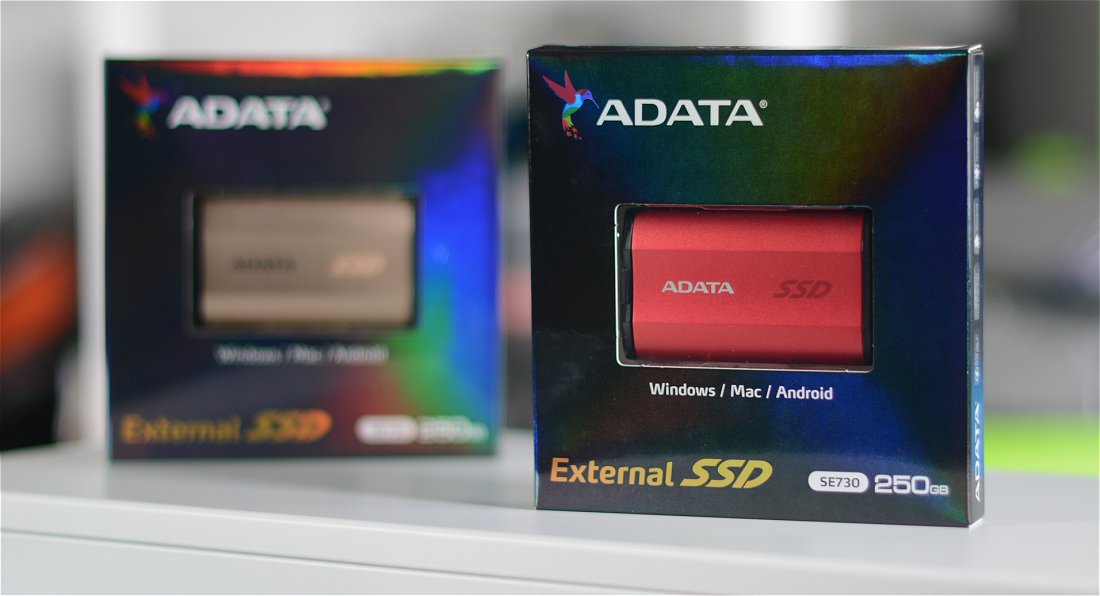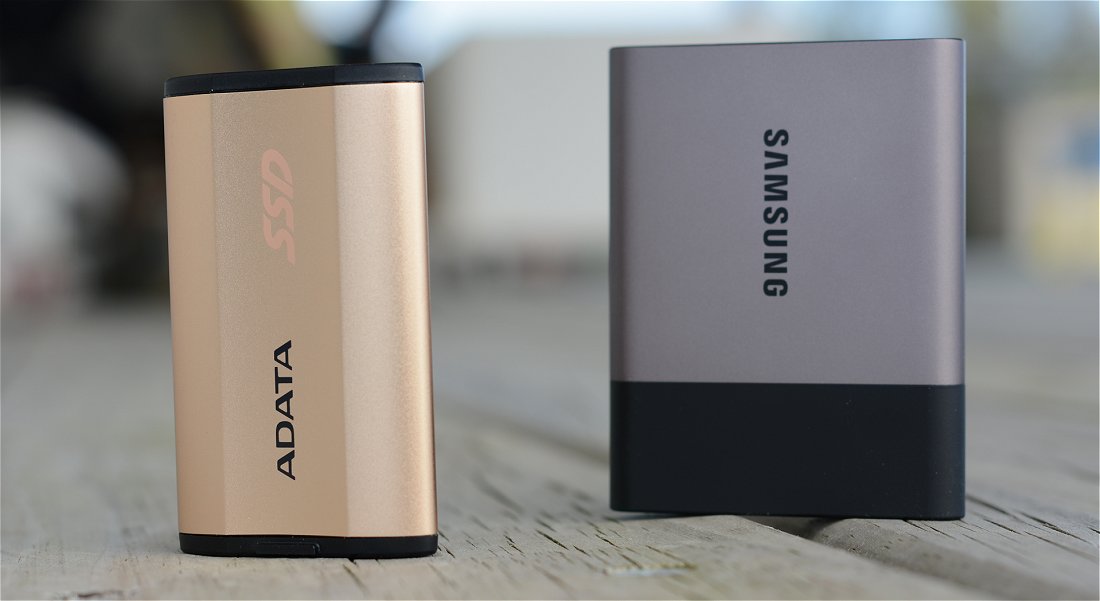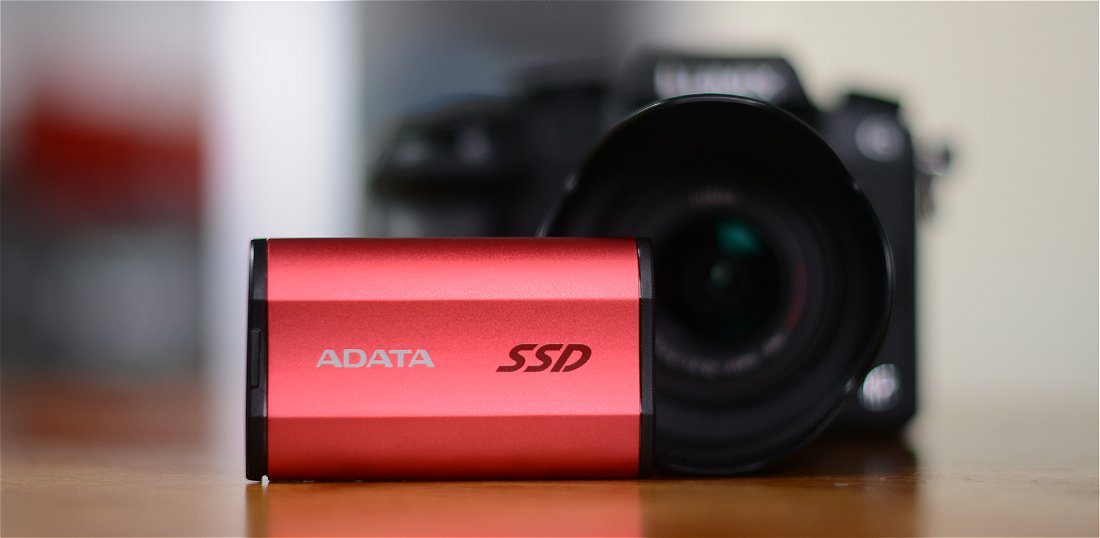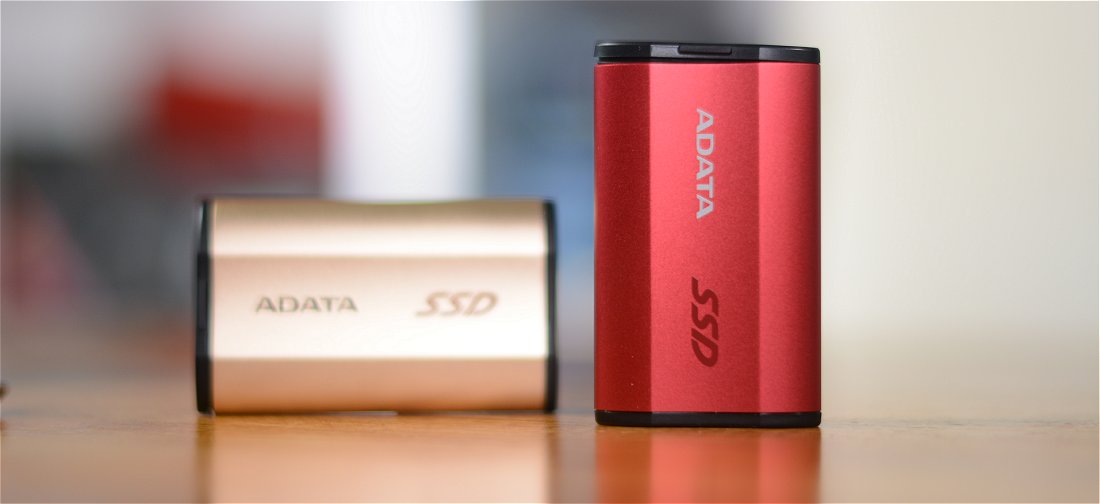"An external SSD that can beat Samsung T3," read the title of an email that I recently received. Curious, of course, I investigated further to find that ADATA was behind the bold claim. Its purported 'T3 destroyer' was also the smallest external SSD you can buy with an IP68 rated shockproof, waterproof and dustproof enclosure.
I couldn't pass on taking a look at this tiny yet apparently mighty portable SSD. Dubbed the SE730, it weighs a mere 33g (1.1oz) and measures 72.7mm long, 44mm wide and 12.2mm thick (2.8" x 1.7" x 0.4"). The bulk of the enclosure has been constructed from aluminum and depending on your preference comes in either an anodized red or gold finish.
Like Samsung's T3, ADATA's SE730 features a Type-C (USB 3.1 Gen2) connector but comes with a Type-C to Type-A USB cable for broader compatibility. The drive only requires 4.5 watts to operate so it can be powered from the USB interface.
ADATA claims that the SE730 is good for a throughput up to 550MB/s when reading and up to 450MB/s when writing data, based on sequential read/write numbers from ATTO Disk Benchmark.
In contrast, Samsung's offering lists up to 450MB/s for both the read and write throughput of the various T3 models, so on paper ADATA certainly look to be at least a nose ahead in the performance department.
Something worth noting however is that while the T3 can be purchased in 250GB, 500GB, 1TB or even 2TB models, the SE730 only offers a 250GB capacity. That's a little disappointing for a product that is meant to put the T3 out to pasture.
Variety certainly isn't the SE730's strong point, but how about value? Well we know the Samsung T3 series costs $100 for the 250GB model ($0.40/GB), $170 for 500GB, $370 for 1TB and a cool $730 for the 2TB unit ($0.36/GB), which is to say the smallest model represents the worst value.
Unfortunately, the SE730 does nothing to improve that situation at a cost of $120 or $0.48 per gigabyte. Priced about 18% higher than the 250GB T3, the SE730 will have to be quite a bit faster for it to make financial sense. Let's find out if it is...
Benchmarks
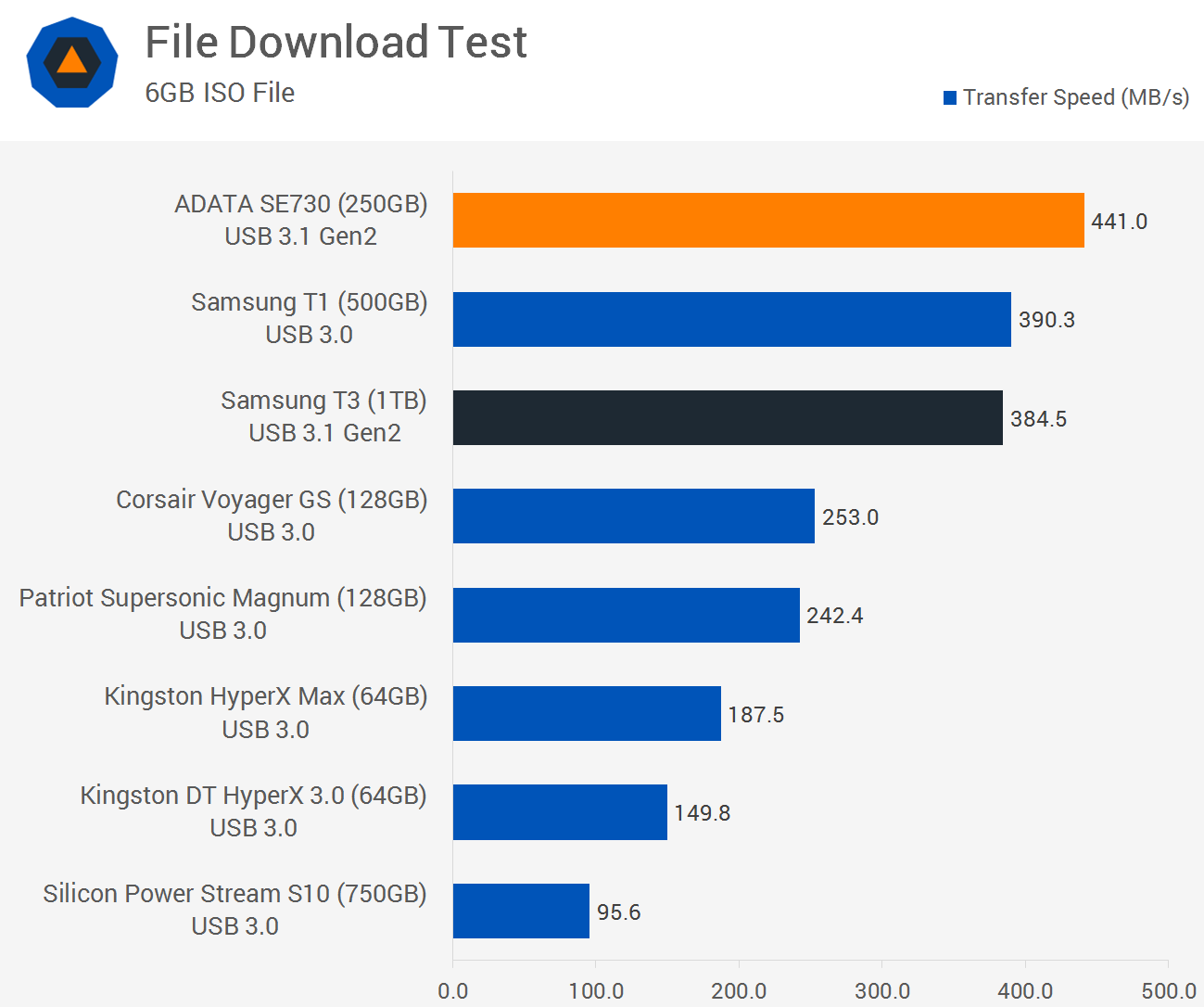
The ADATA SE730 is indeed faster than the T3 in our single large file download test, sustaining a transfer speed of 441MB/s, or 15% faster than the T3 – a great start for ADATA.
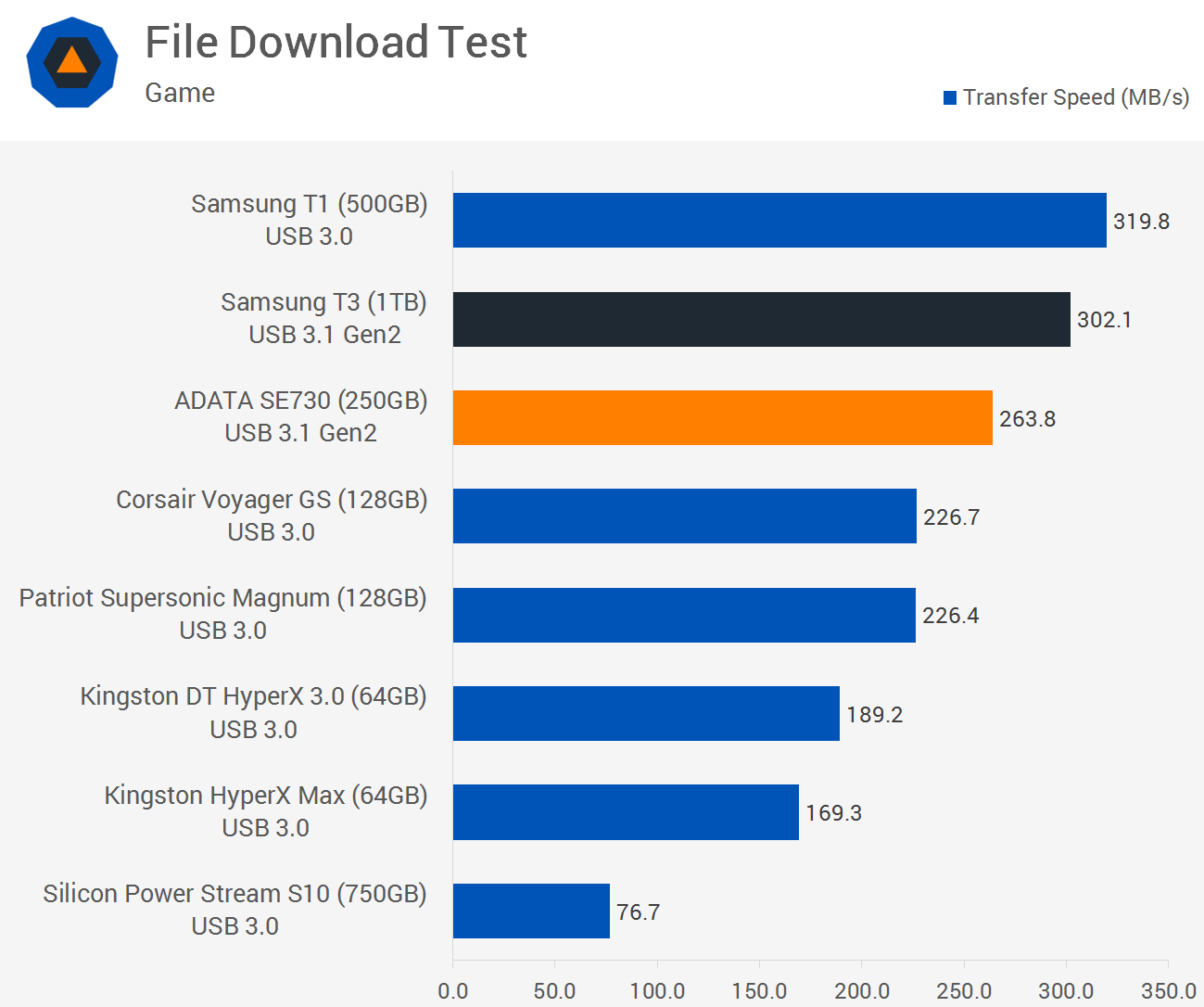
Unfortunately, the SE730 did slip behind the T3 in the game download test, dropping to a throughput of 263MB/s making it 13% slower here.
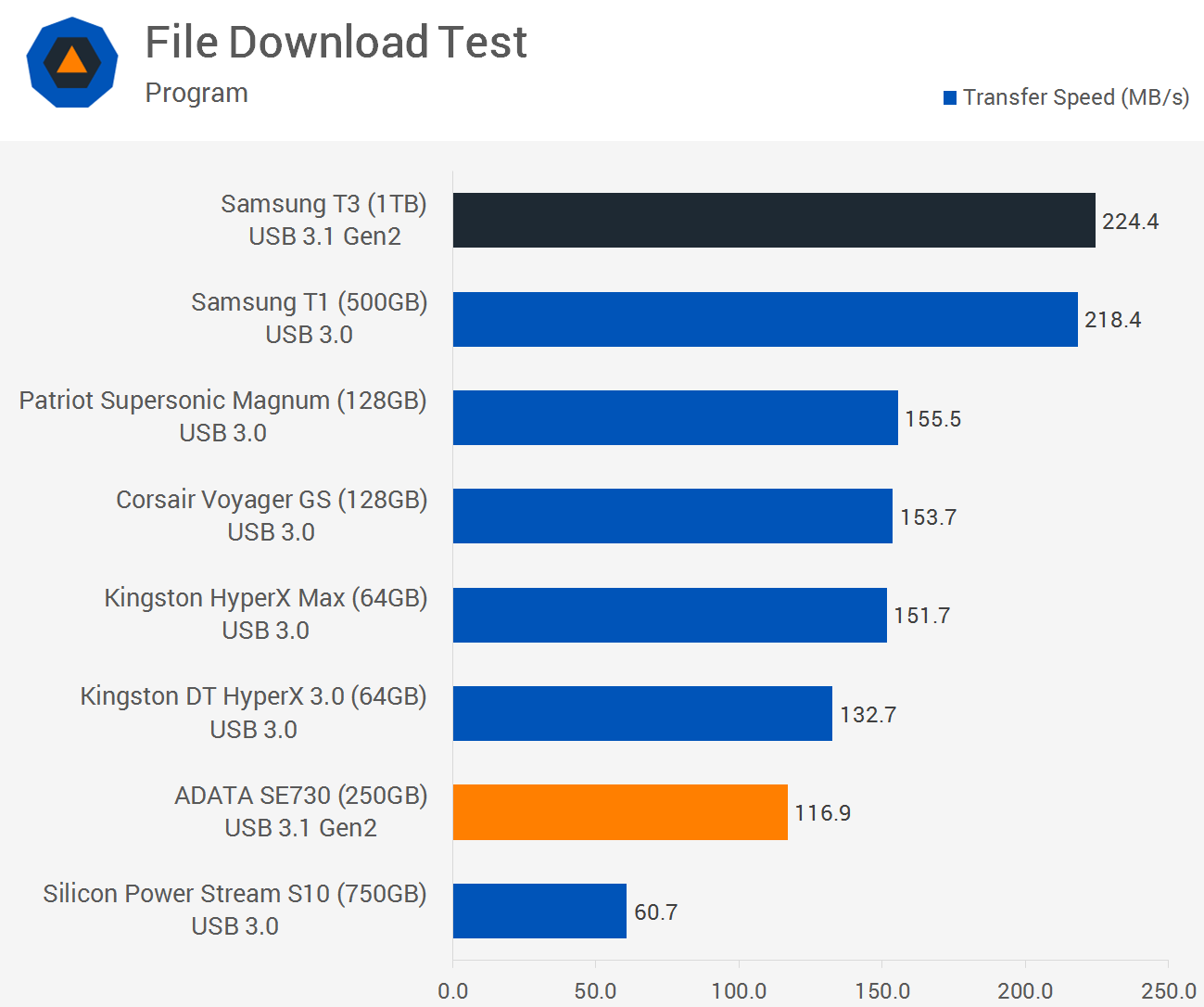
The SE730 struggled massively in the program download test. Here it managed a transfer speed of 117MB/s making it almost 50% slower than the Samsung T3.
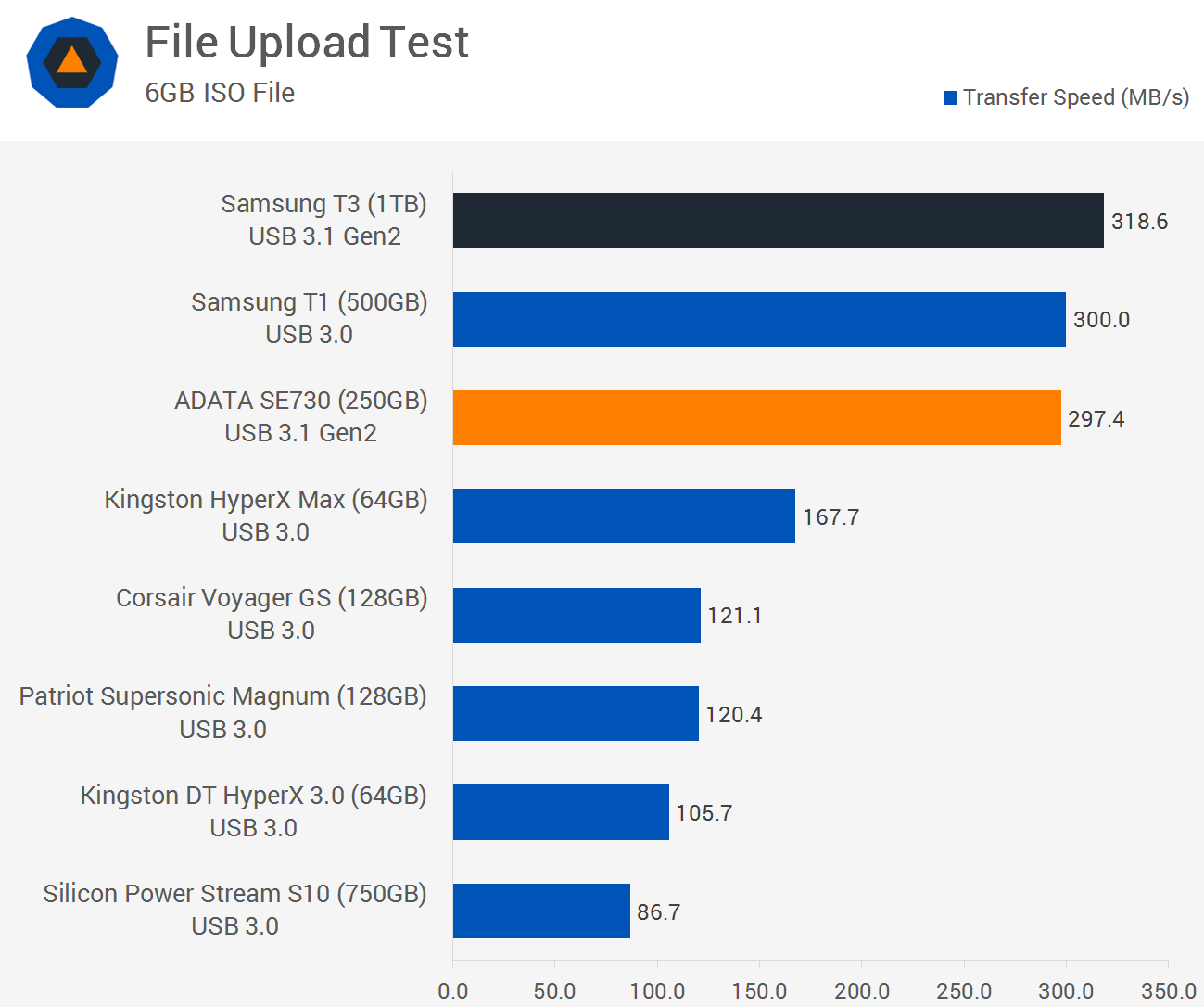
When measuring single file upload performance, the SE730 roughly matched the old T1 drive, making it slightly slower than the T3.
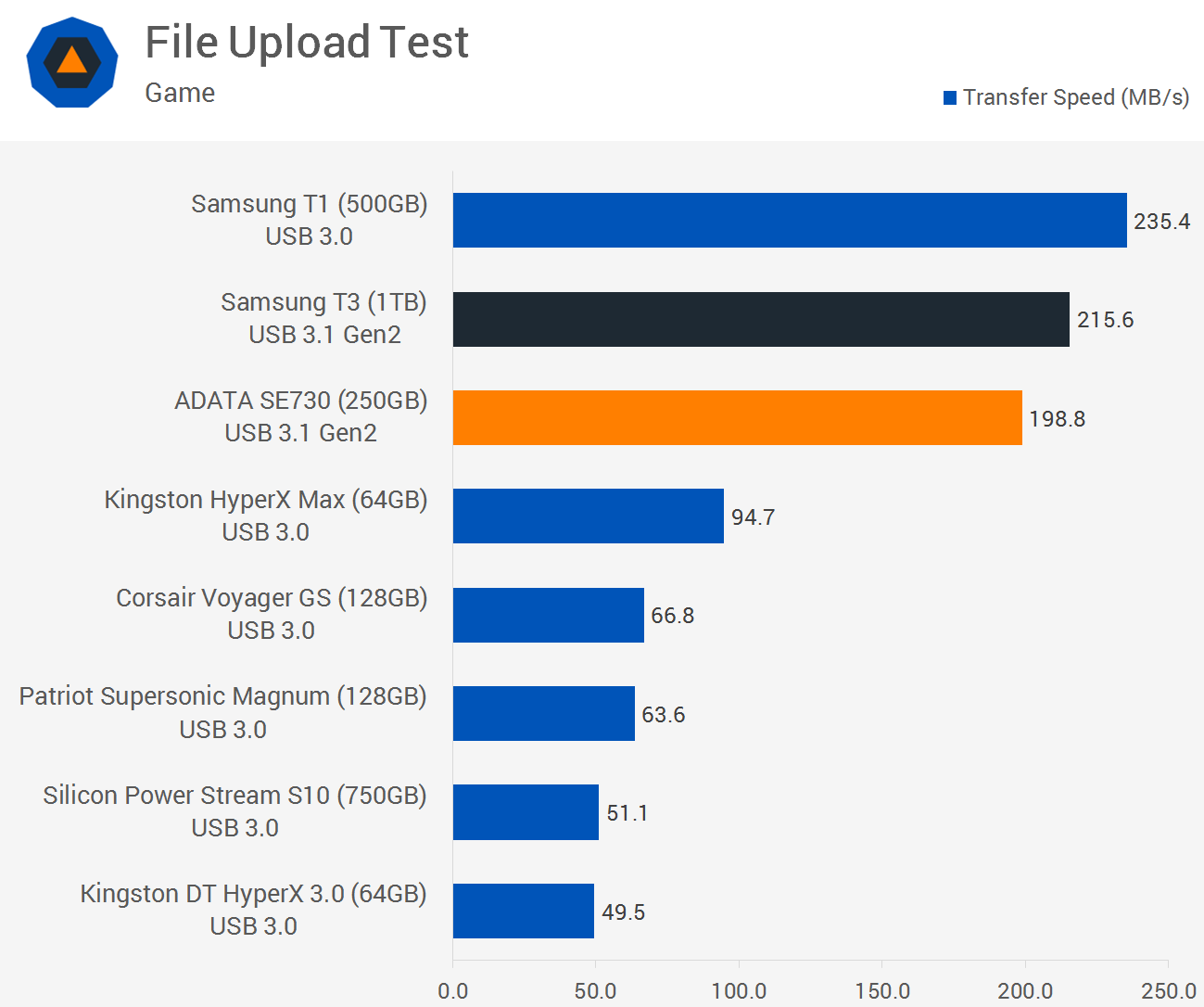
The SE730 is again less than 10% slower than the Samsung T3 in the game upload test, though it's concerning to see that it's slower at all.
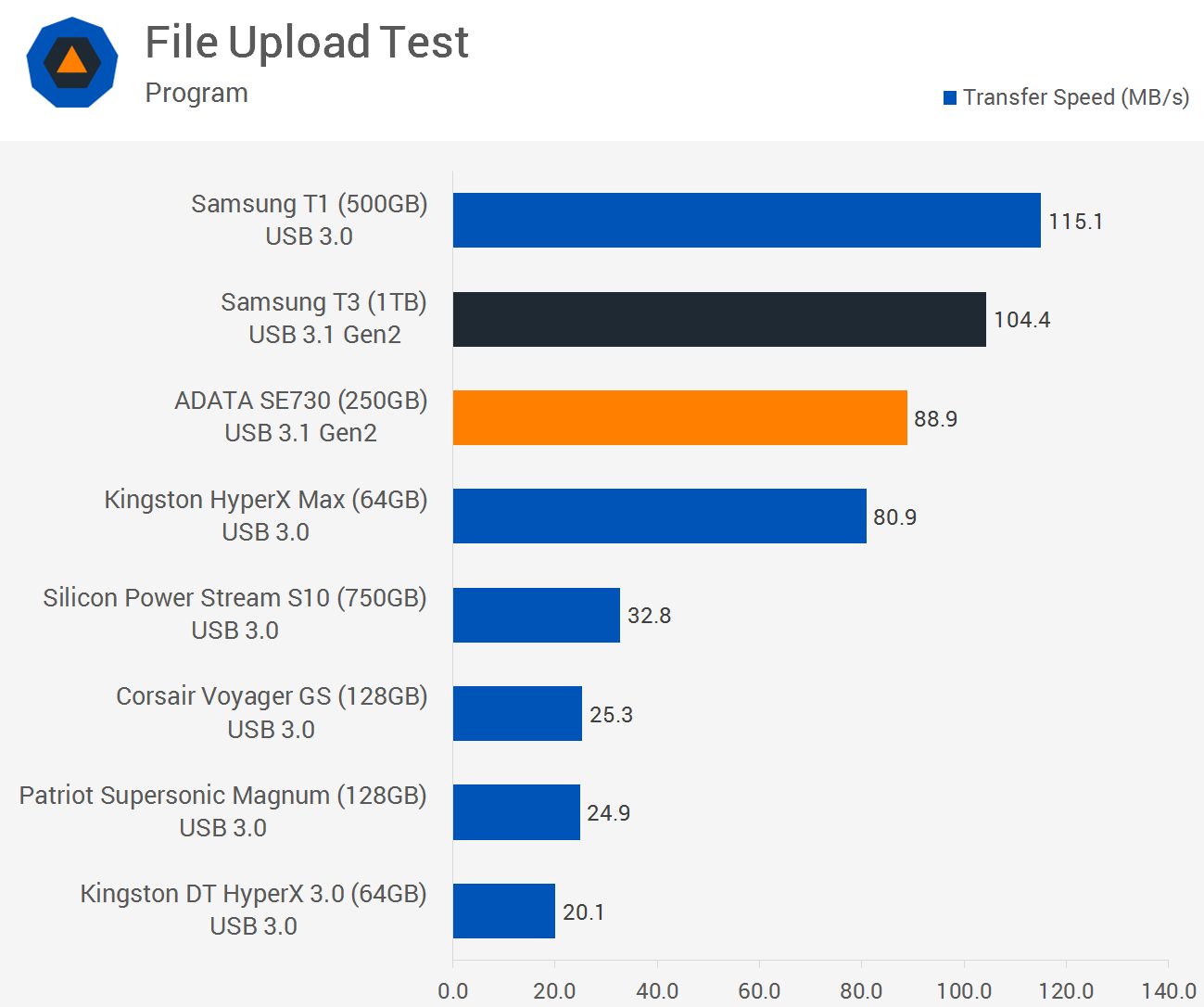
Finishing up the upload testing is our program data and here the SE730 was 14% slower than the T3 as the throughput dropped below 100MB/s.

The copy tests combine the read and write performance and here we see when working with large files the SE730 can sustain well over 100MB/s. That said, with a throughput of 149MB/s, the SE730 was still 11% slower than the T3.
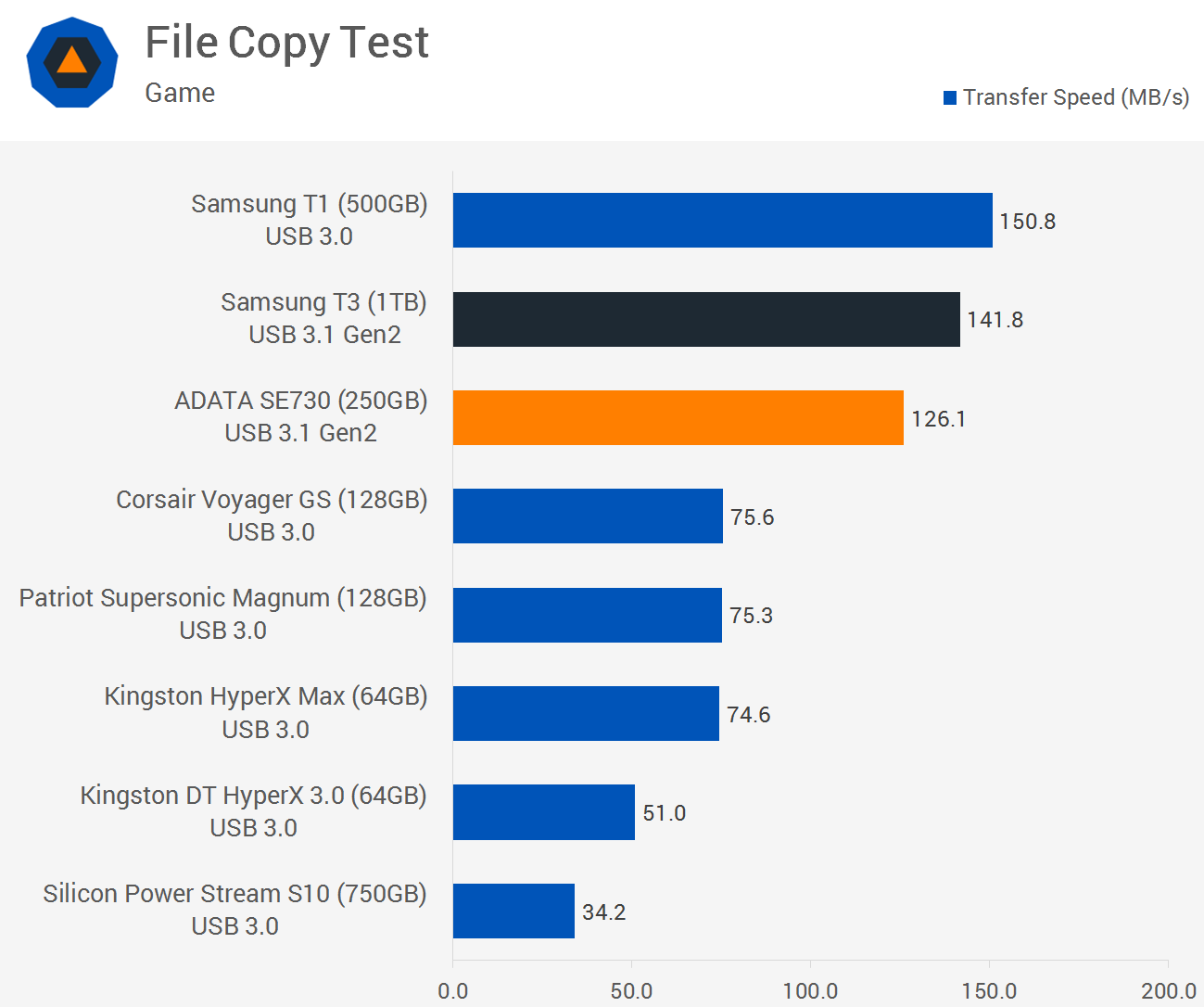
This time when copying our game data on-disk, we again find that the SE730 is 11% slower than the T3.
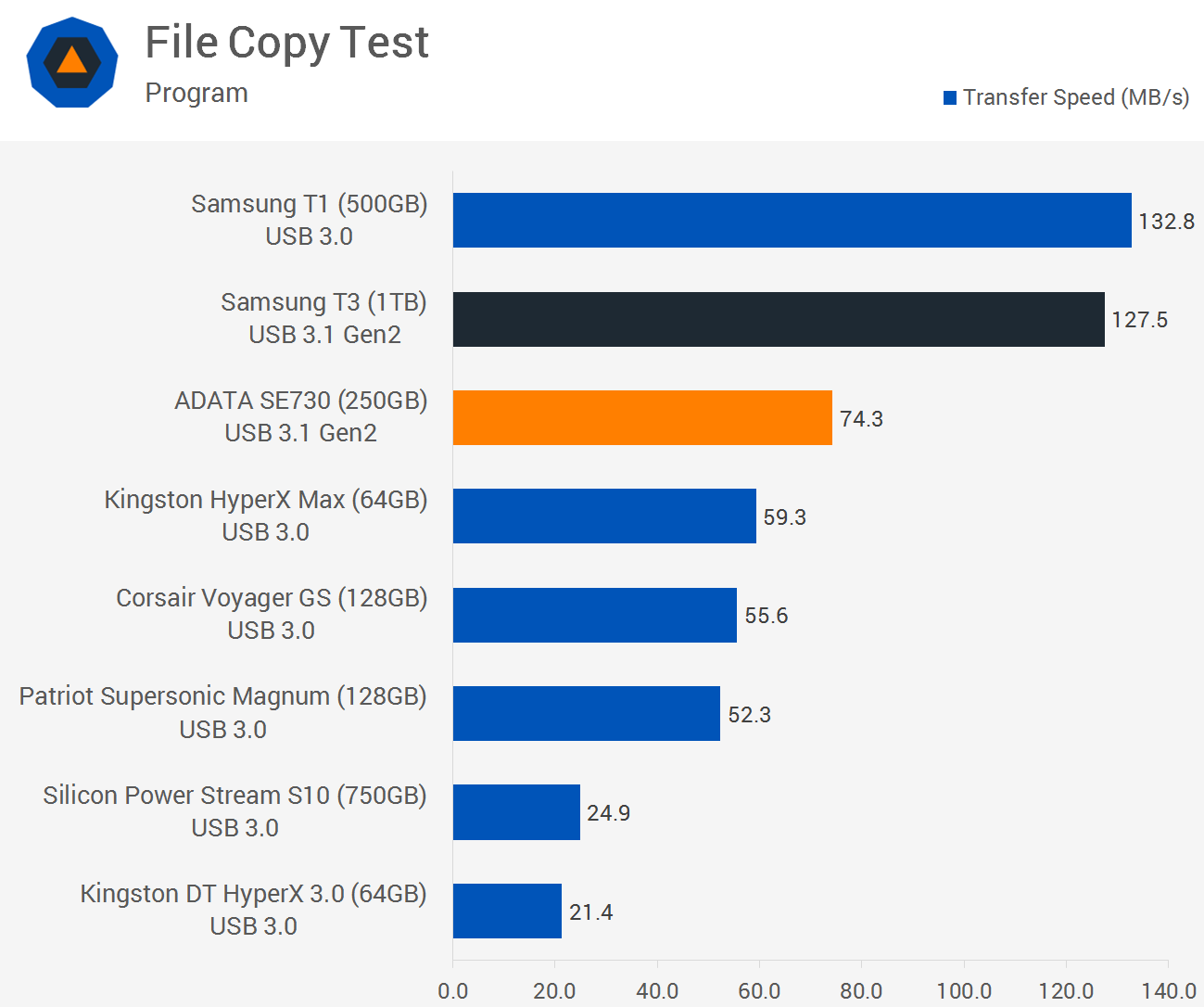
Finally, the program copy test and as was the case with the download test, the SE730 really struggles here. ADATA's little portable SSD was down 42% on the T3 as the throughput maxed out at 74.3MB/s.
Final Thoughts
We're not sure what to make of ADATA's new portable SSD. The company came out swinging with claims of its drive being faster and better than Samsung's T3 series. That's a tall order and they ultimately fell short on delivery.
Perhaps the biggest issue is that you can refer to Samsung's T3 as a 'series', whereas the SE730 is a single 250GB drive. We wonder how ADATA plans to compete in a space so populated with portable SSDs of varying capacities.
At $120+ the SE730 250GB is competitively priced, but the T3 can be bought in many sizes with the 250GB model currently going for $100. For a bit more money, you can also buy the 500GB T3 ($170). It has to be said that the Samsung T3 looks and feels higher in quality, even the USB Type-C cable is a lot nicer. The T3 is also slightly faster, at least the 1TB model that we have is.
ADATA's compact packaging certainly has appeal and so does being waterproof, dustproof and shockproof. Aesthetically, the gold version didn't do much for me but I did like the red model.
Shopping shortcuts:
In the end, performance, capacity, design and pretty much everything else can take a back seat as the price is what's problematic here. We realize ADATA is coming up against a titan in Samsung, but it's a fight they picked so we were admittedly hoping the SE730 packed a more powerful punch.
score
Pros: Compact enclosure that's water/dust/shockproof. Strong single large file download speeds.
Cons: A bit slower, pricier and cheaper feeling than Samsung's T3, which also comes in more capacities.

